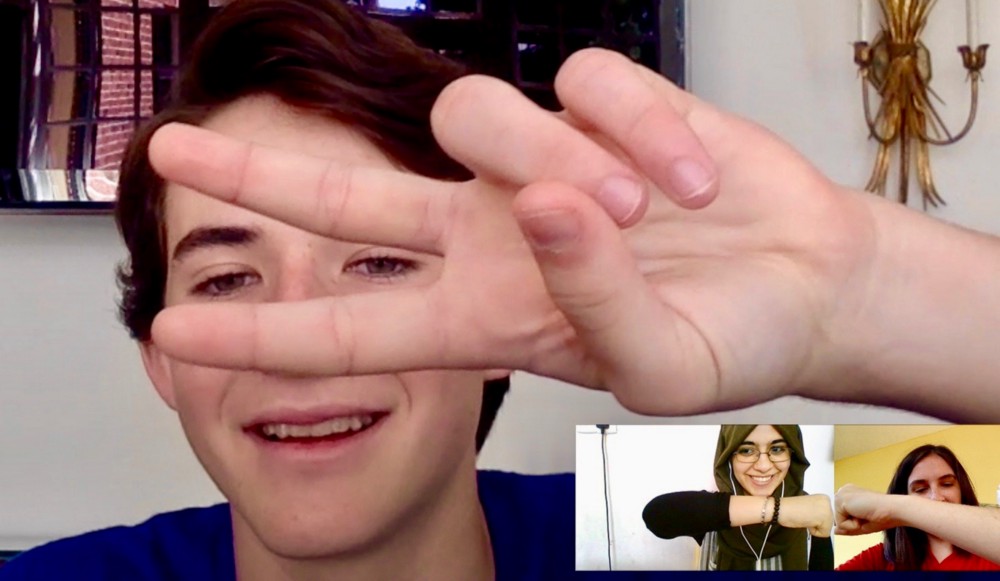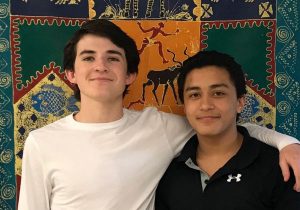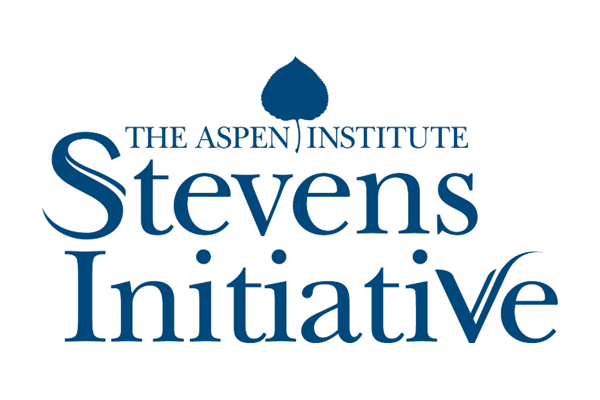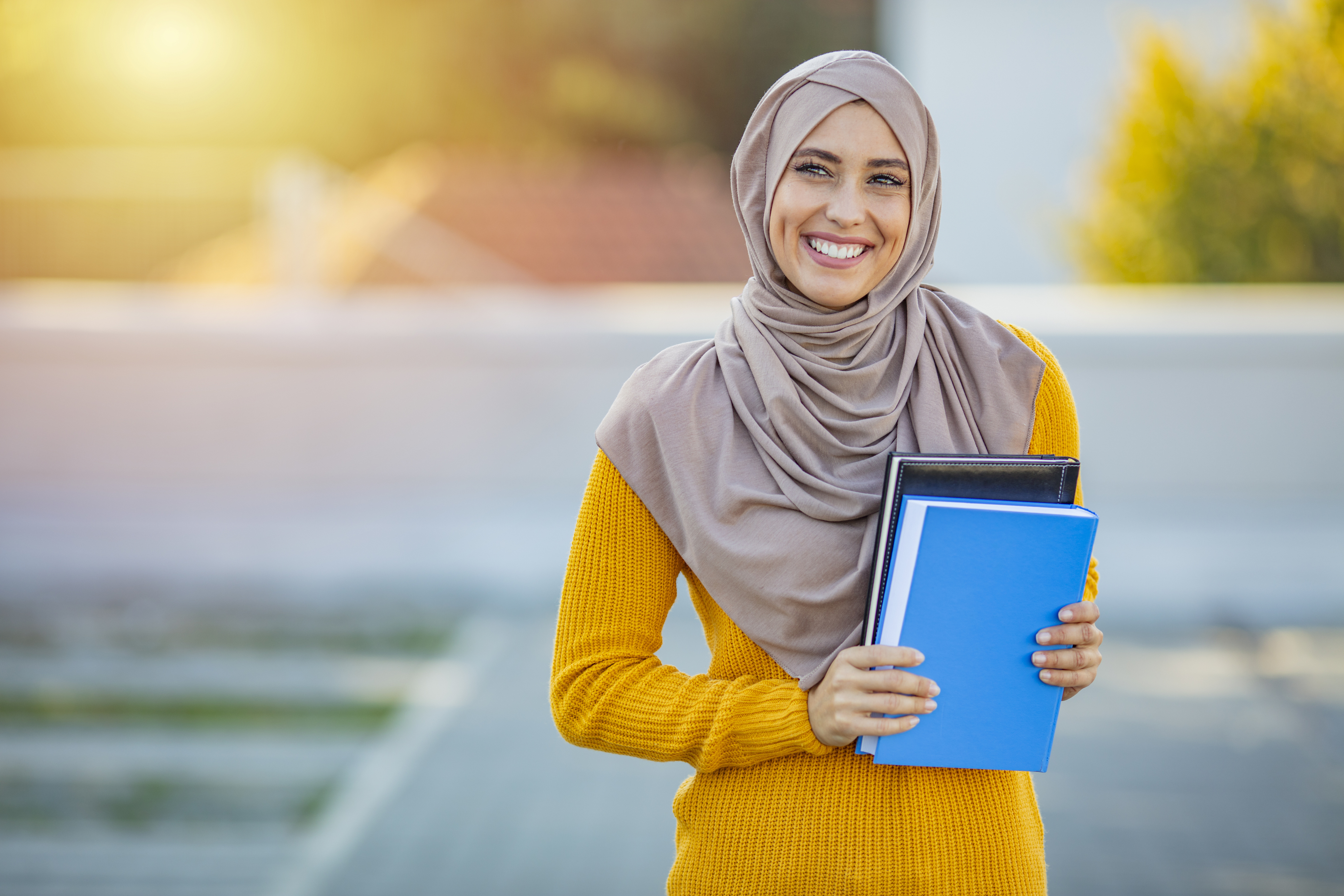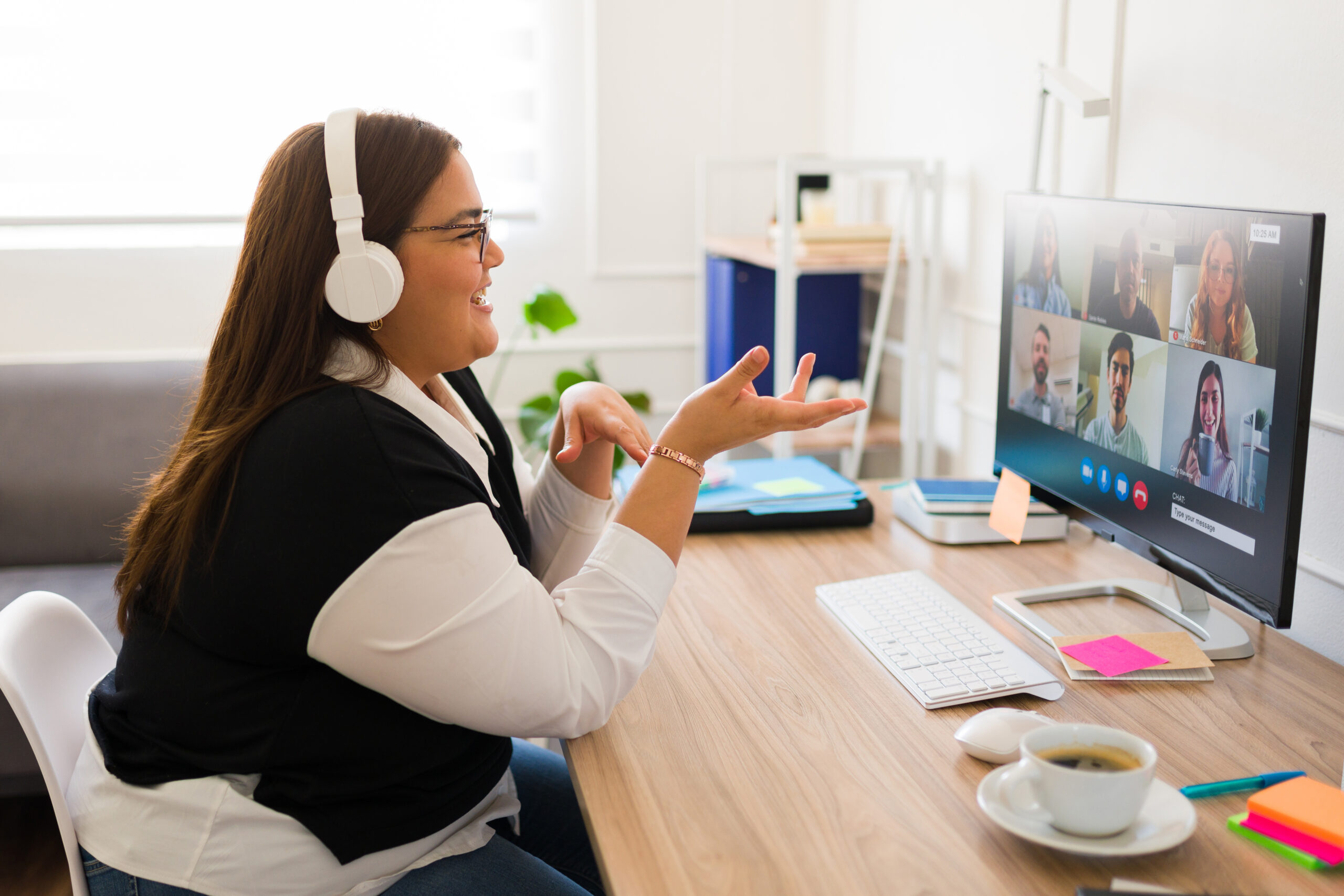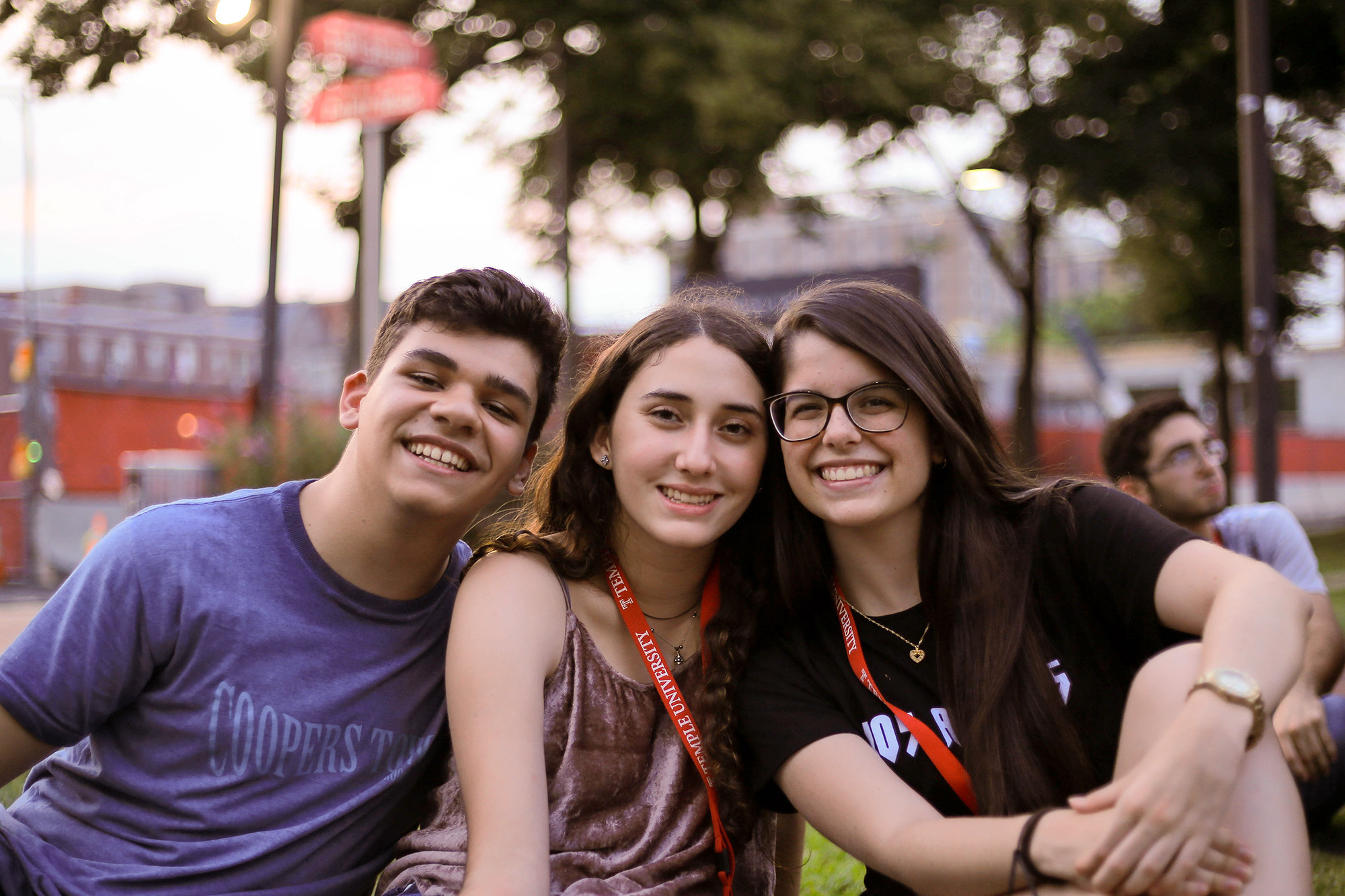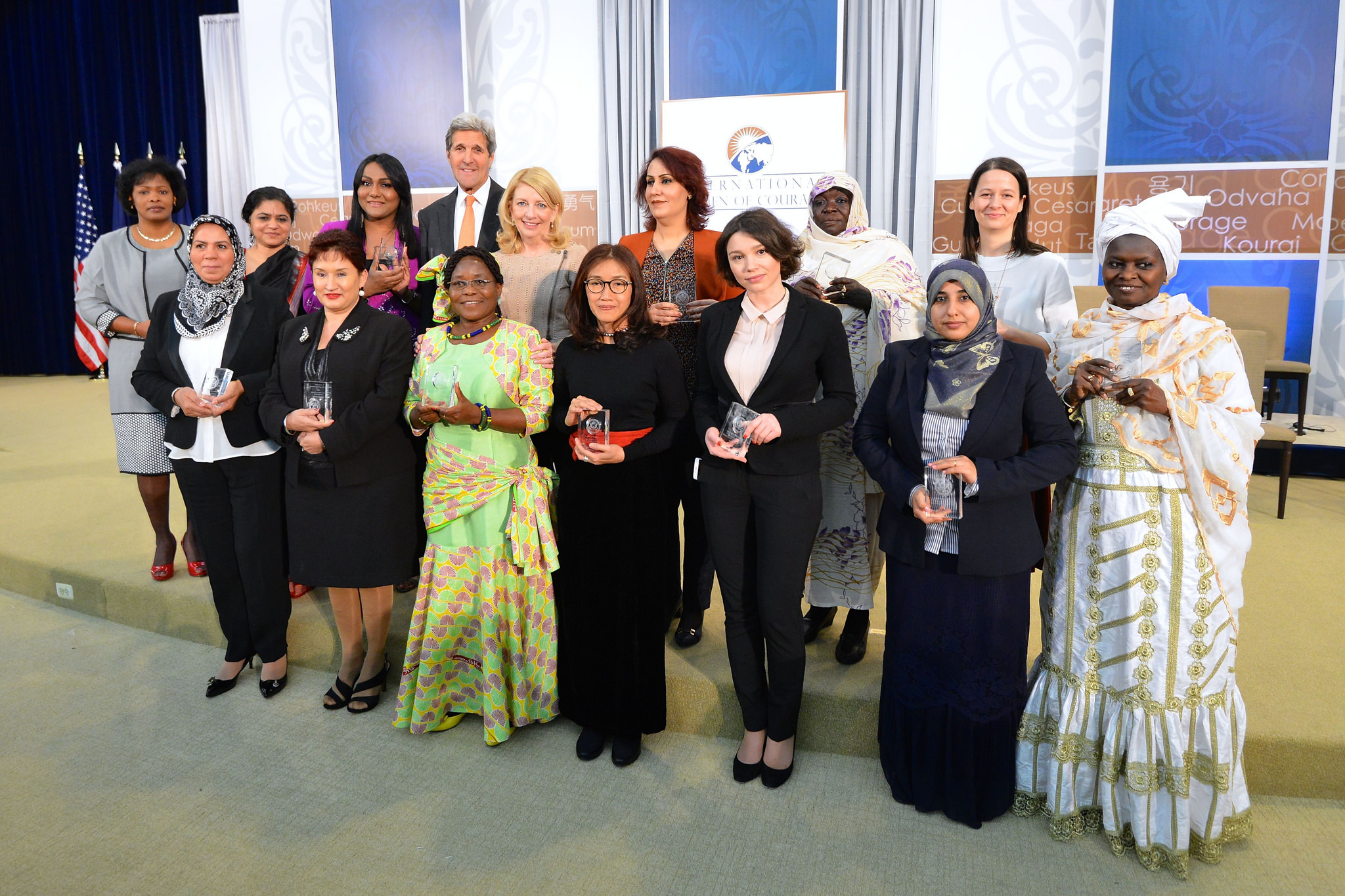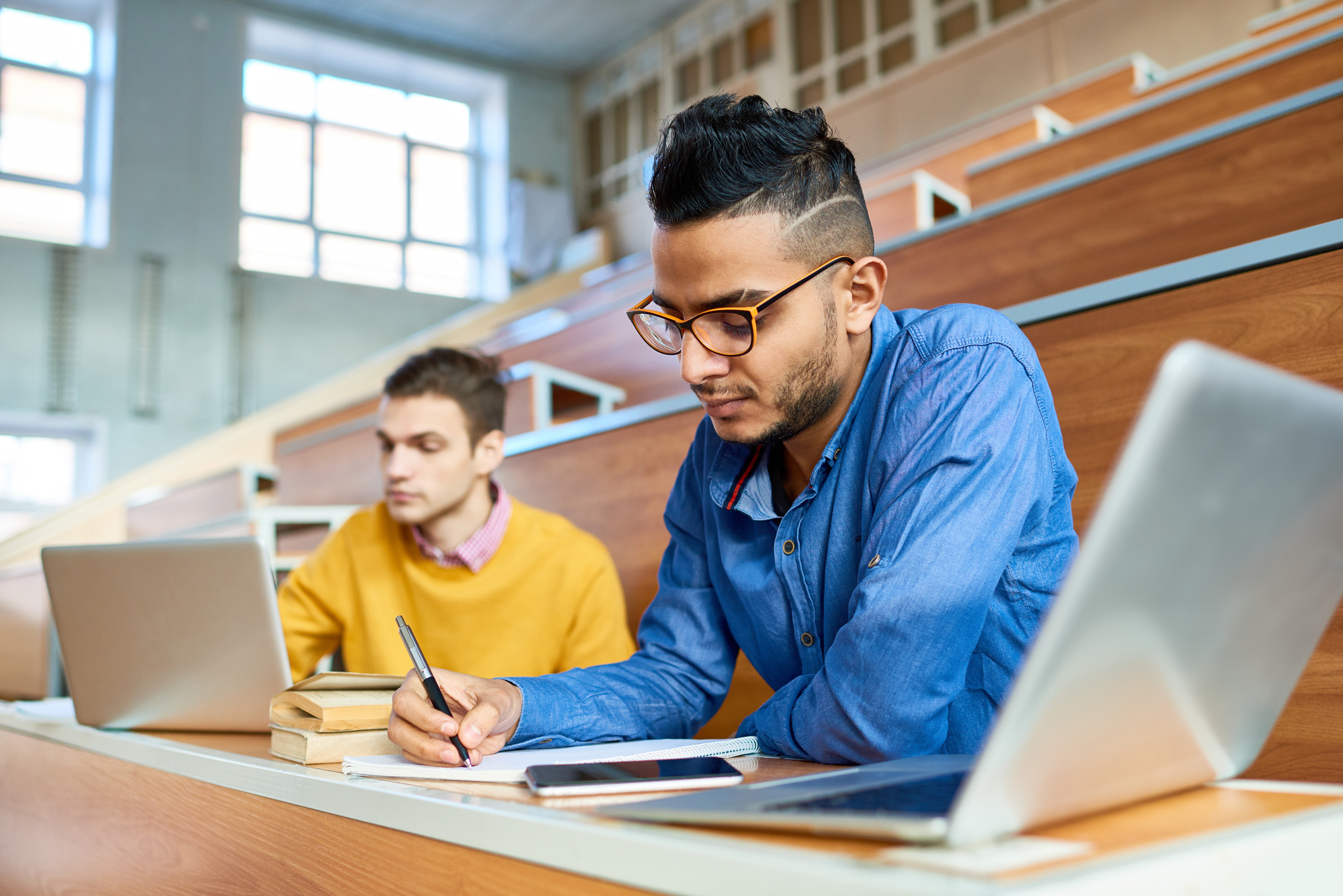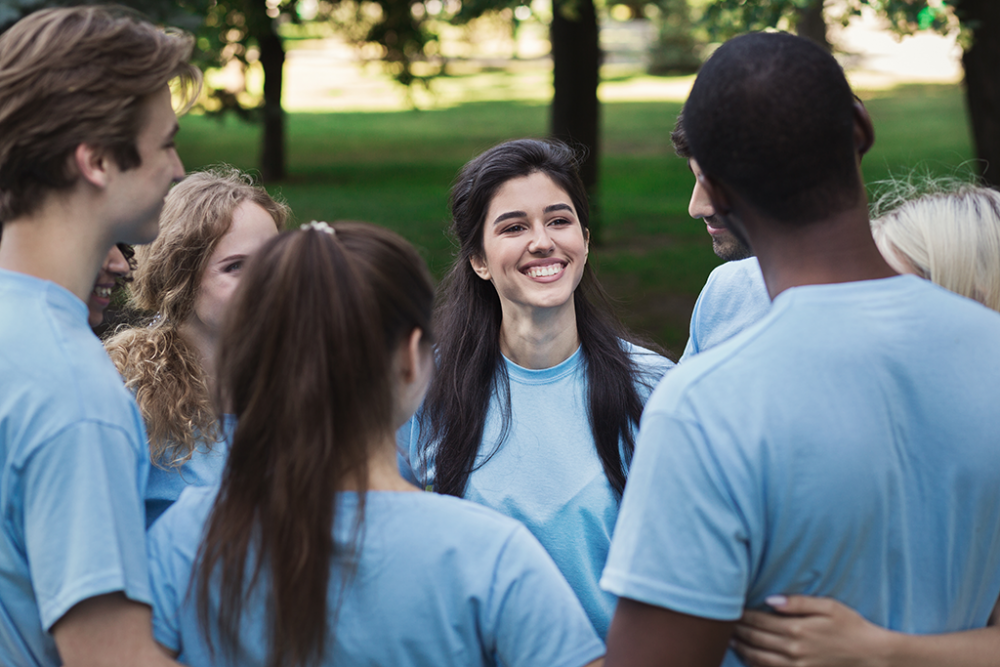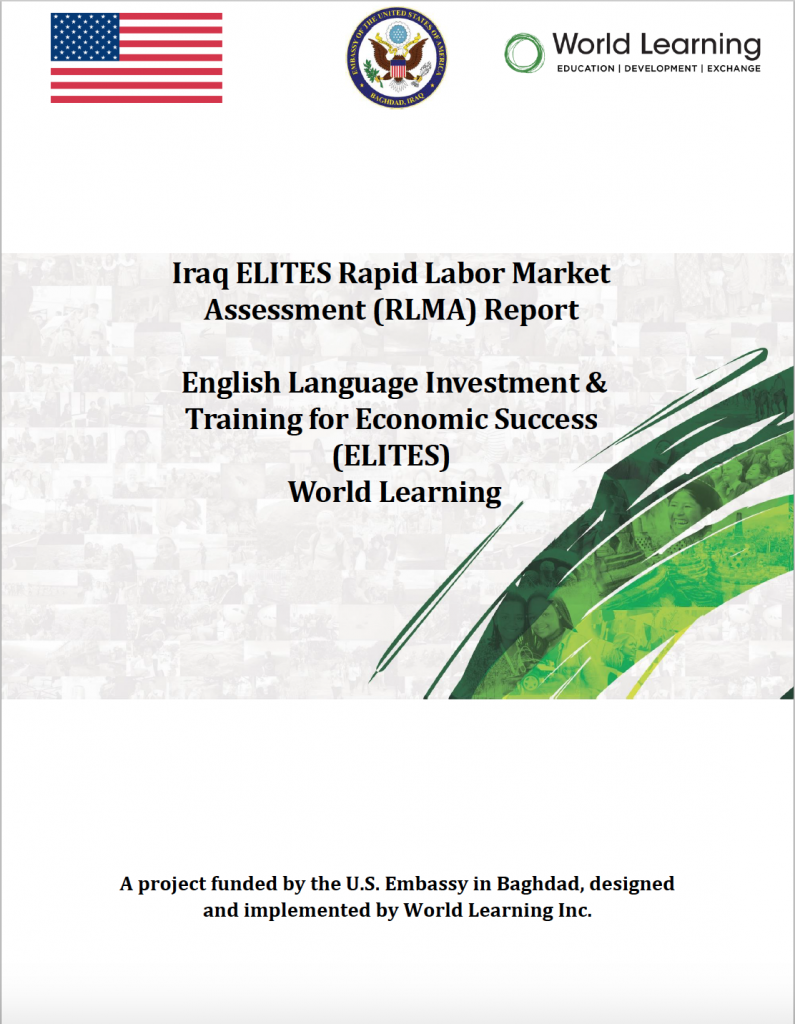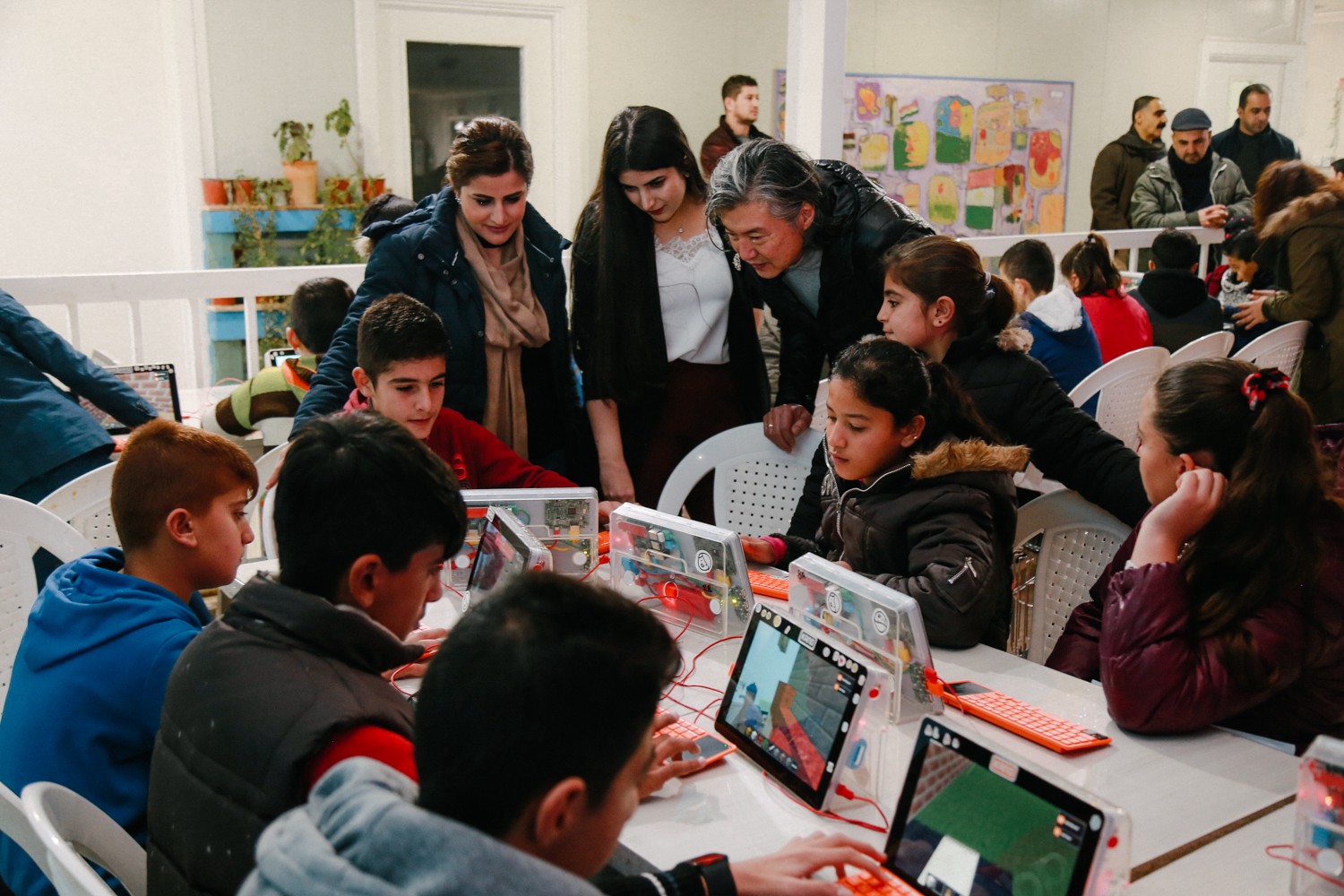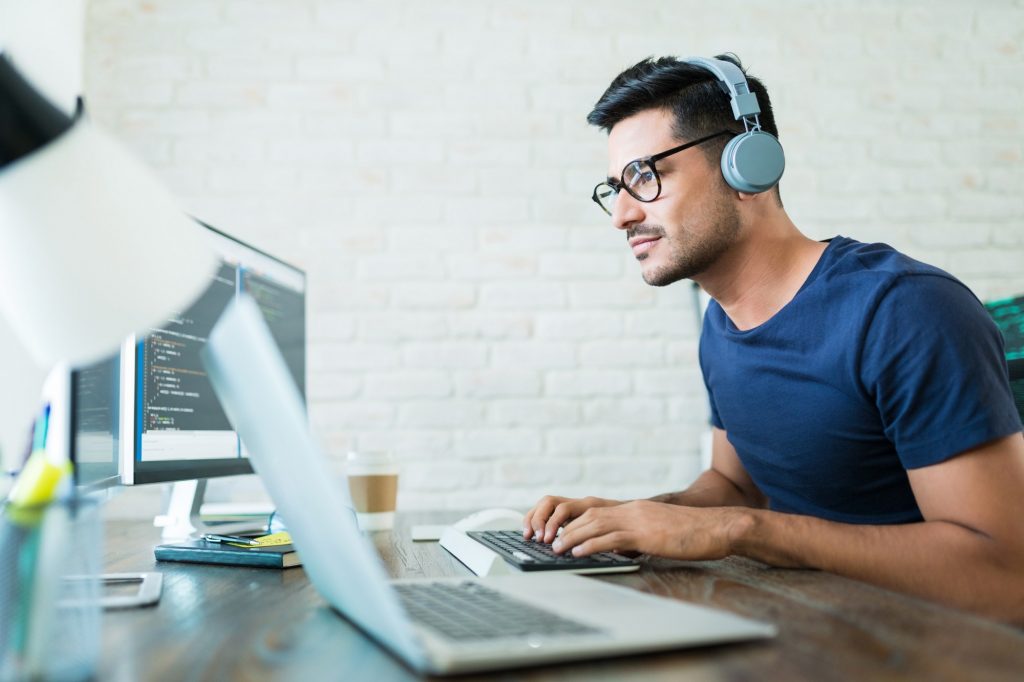
Participants of World Learning’s Bawsala Career Mentorship Program in southern Iraq have significantly higher rates of employment than alumni of another U.S.-funded career program in the region and college-educated young adults who didn’t go through a program at all, according to a recent tracer study.
Bawsala Career Mentorship Program is an approach to youth workforce development created by World Learning for the Middle East and North Africa (MENA) region. In addition to teaching job-seeking skills, it offers an experience of self-discovery that can ultimately lead young workers to a more fulfilling career.
“World Learning’s Bawsala Career Mentorship Program is a proven, scalable, and replicable model that we have successfully implemented in a number of different contexts to help connect young women and men to professional opportunities,” says Catherine Honeyman, World Learning’s senior youth workforce specialist, who led the study.
The program started in 2015 to build job-preparation skills for college students in southern Iraq, an important economic center rich in oil, gas, and agriculture.
To date, 177 students have completed the program, funded by the U.S. Department of State, despite challenging circumstances.
Since the program was launched, southern Iraq has been hit hard by anti-government corruptions protests and a wave of violence that shuttered the U.S. consulate in Basra; high youth unemployment following years of ISIS activity and recruitment in the area; and more recently, the global COVID-19 pandemic.
Despite these monumental hurdles, the Bawsala Career Mentorship Program not only has endured but has even expanded to three neighboring areas in the south: Dhi Qar, Maysan and Muthanna.
“Our combination of periodic online or in-person meetings with a mentor, self-study guides, and the support generated within the group have been powerfully effective with our participants and have adapted to difficult situations and needs,” says Honeyman.
Today, Bawsala — Arabic for “compass” — helps college-educated youth find their way in the region’s private-sector job market. Adult mentors working in a variety of industries act as a kind of compass, helping young people navigate their career path.
This is no small task, given high unemployment throughout the country.
Youth Unemployment Rates Soar
In 2020, Iraq’s official unemployment was reported at 12.83 percent despite a bloated state sector. Youth unemployment is estimated to be much higher, at over 25 percent.
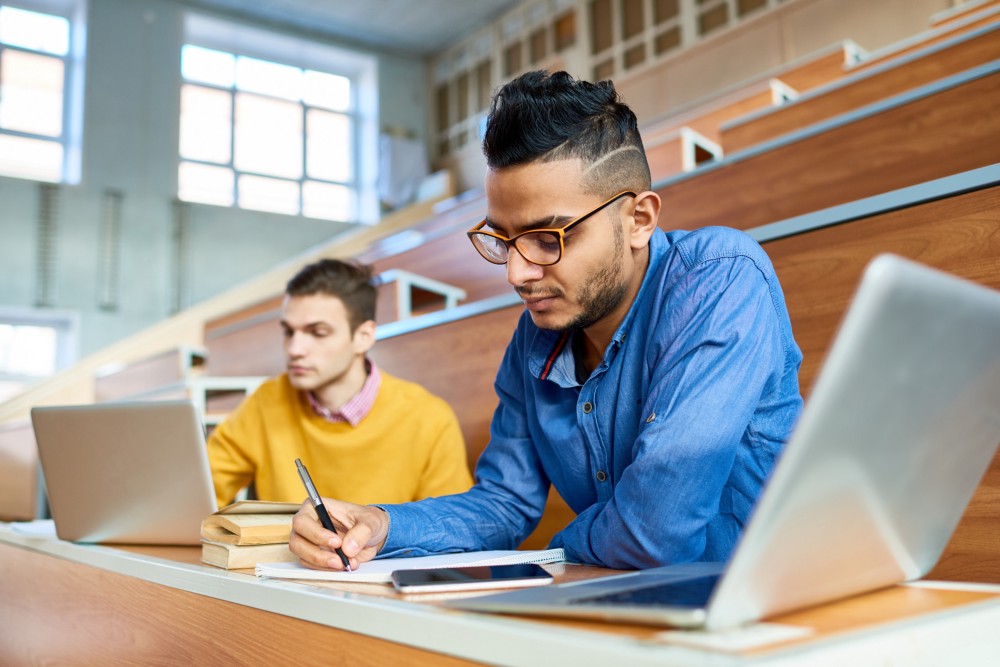
Youth with higher education degrees don’t seem to fare much better. World Learning’s recent tracer study noted that well-educated youth face particularly “high levels of unemployment and social discontent.”
According to the UN, Iraq has one of the youngest populations in the world. More than 60 percent of the population is under the age of 25.
World Learning supports several comprehensive workforce preparedness programs in Iraq, including Southern Iraq Job Skills Development Program, Basrah Employability and Entrepreneurship Program, and English Language Investment and Training for Economic Success (ELITES) virtual program
Tracer Study Findings Support Bawsala Method’s Effectiveness
A tracer study tracks participants after they complete a program to find out how the program impacted their lives.
“In this case, we could compare our participants’ employment outcomes to the employment rates found among Iraqi youth using university career centers — and we found that our participants had about a two times higher rate of employment despite the COVID-19 pandemic,” says Honeyman.
Despite a tough job market in southern Iraq’s Basra Governate, Bawsala Career Mentorship Program also compared “very favorably” to employment rates of a similar group — university graduates who accessed Career Development Center (CDC) services under the U.S. Iraq Higher Education Partnership Program (HEPP).
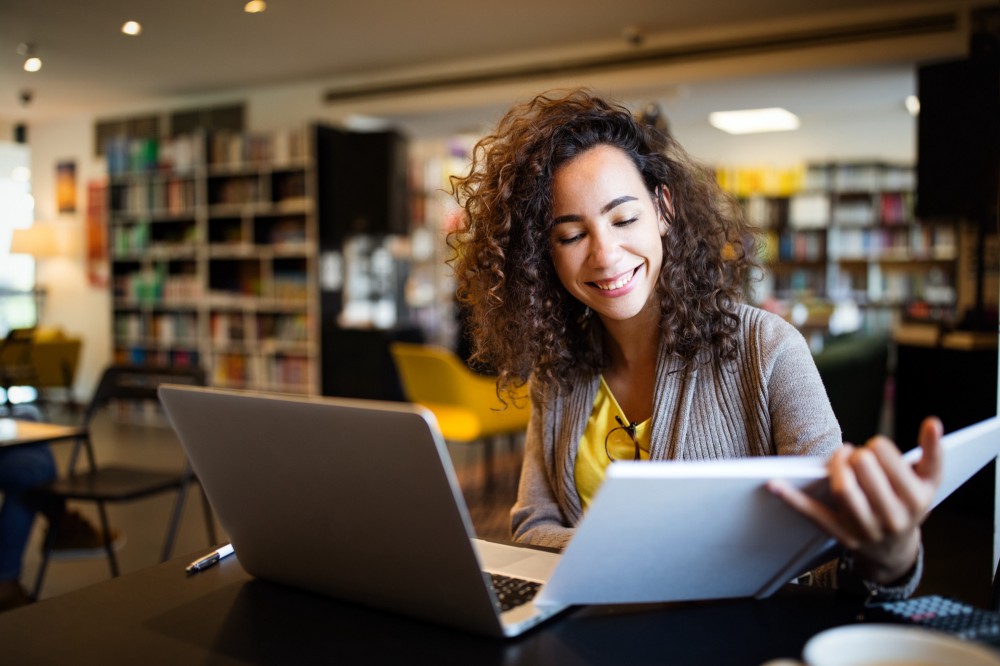
The tracer study found World Learning’s Bawsala Program demonstrated a higher rate of employment both during COVID-impacted closures (36 percent versus 22 percent) as well as longer-term pre-COVID employment (52 percent versus 26 percent) than CDC services.
“We were surprised and pleased to learn through this tracer study that our participants have attained significantly higher employment rates than comparable motivated youth who have accessed university career services in Iraq,” says Honeyman, an expert in education quality, employment, and entrepreneurship with extensive experience leading research and policy analysis.
“This shows that our mentorship model offers important added benefits,” she adds, pointing out that young women in a socially conservative region are able to fully participate in the Bawsala Career Mentorship program.
Skills Sought by Private Sector Employers
A pre-pandemic survey of private-sector employers in Iraq revealed that recent college graduate job candidates lacked skills such as critical thinking, time management, and flexibility — the soft skills needed to succeed in the workplace.
The program coordinator for Bawsala Career Mentorship Program in Iraq [World Learning also runs a Bawsala Career Mentorship Program for young women in Algeria], says the aim of the mentorship program is to develop a range of interpersonal communication and life skills required by Iraq’s private sector and international employers.
“Bawsala is different from other programs in that it focuses on the actual needs of the job market,” she says.
In 2019, World Learning conducted a labor market study and a follow-up in 2021 in the Basra area. . The program integrated the most needed skills by the employers in the southern region.
“English language skills are the number one thing employers are looking for,” says the coordinator, who previously worked as a translator at the U.S. consulate in Basra.
Bawsala Career Mentorship Curriculum
The Bawsala curriculum spans eight months — approximately four hours of material a month for a total of 32 contact hours — and includes business English.
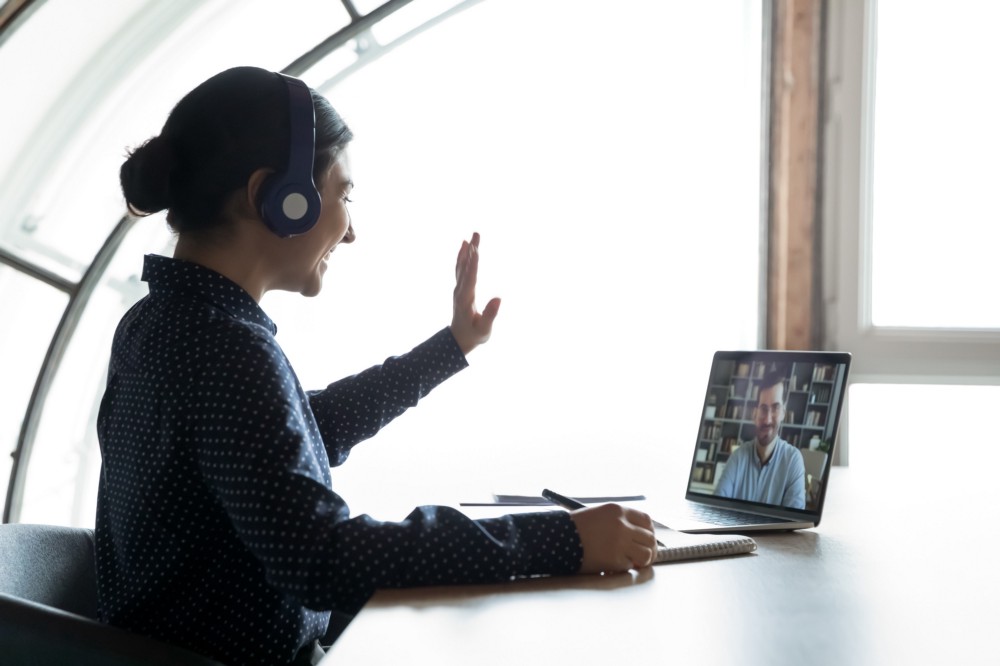
The current cohort started this spring and is made up of 80 students and 12 mentors from four provinces in southern Iraq who meet virtually due to the pandemic.
The program aims for parity between young men and women, as well as diversity based on religious and sectarian affiliation, including minority groups and students with disabilities.
Throughout the mentorship program, students work with a group of nine other students and a mentor in activities aimed at building relationships.
Mentors meet regularly online with their groups to introduce each module, and in between meetings, mentees work on individual exercises and receive feedback and guidance from peers.
The program covers eight themes including understanding personal strengths and weaknesses, conducting an effective job search, preparing and acing a job interview, public speaking, creating a virtual professional footprint, entrepreneurship, and problem-solving in the workplace.
The program coordinator says the virtual meetings go twice as long as they did in person because there’s more discussion and students are eager to participate. They are given two weeks to complete a self-guided activity online before the module wraps up with another meeting and lots of discussion.
It turns out, “the virtual choice was excellent for us,” she says. “What we find is that participants and mentors connect more easily via Zoom.”
Participant and Alumni Feedback
Bawsala Career Mentorship Program participants are 18- to 22-years-old, in university and chosen based on personality and motivation.
The program coordinator says applicants are chosen based on their vision for the future and for themselves.
Participant feedback from the tracer study indicates that participants appreciated the positive impact that the Bawsala program had in their lives.
The program coordinator says students tell her the program has changed both their career and life perspectives.
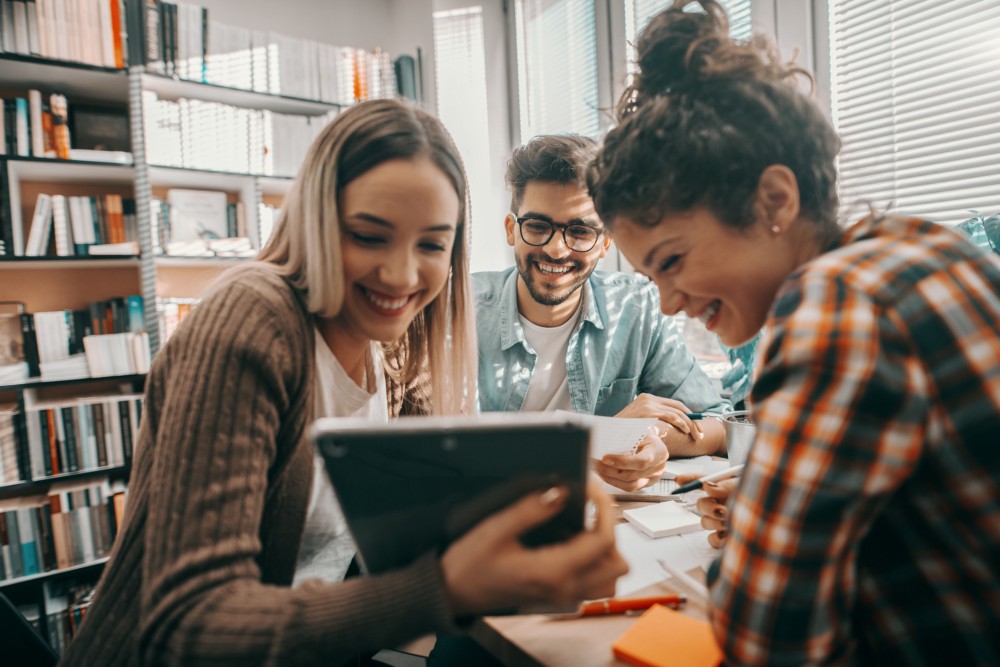
“Some of them are still in college and say their studying has improved, their grades have improved, and the relationship with the people around them has also improved,” she says.
Mentors work in the private sector, often in their company’s HR or recruitment departments, speak English well, and have experience working or training youth.
They are paid a small stipend for their volunteer work.
“It’s a win-win situation,” says the program coordinator. “It helps a company find the perfect candidate.”
The program also incorporates preparedness and networking for budding entrepreneurs. The tracer study indicated that 6 percent of Bawsala alumni were planning to start a business.
In a previous cohort, an IT specialist found two partners to join him in creating a business — an IT center servicing other small businesses.
Other alumni have gotten jobs in the oil and gas industries, energy and power sectors, international organizations, and diplomatic missions.
One tracer study participant writes: “The experience of the career mentorship program was exceptional. I developed my skills a lot.”
He reports getting a pre-graduation job offer, which he accepted. Since then, he reports, he has continued to build his skills: “Now, I am 25 years old and became the director of a health, environment, and safety department of an oil company in Basra.”
The success of the program goes well beyond landing a job. “It made me understand the nature of work, how to write a CV, and other skills,” writes another Bawsala student.
Honeyman says World Learning is already working with some career centers in Iraq.
“I hope we can continue helping them to strengthen their offerings to achieve even greater impact for their students,” she says.
“It’s exciting to have such a consistent chain of programing serving youth in Iraq so that we can really see their successes and support them further over time.”


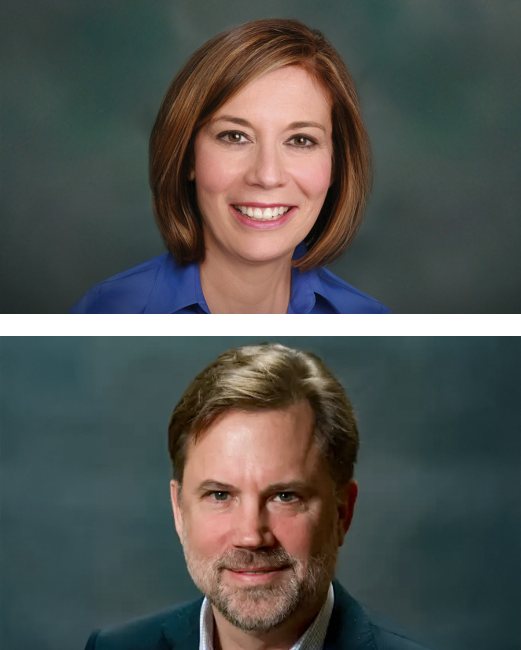

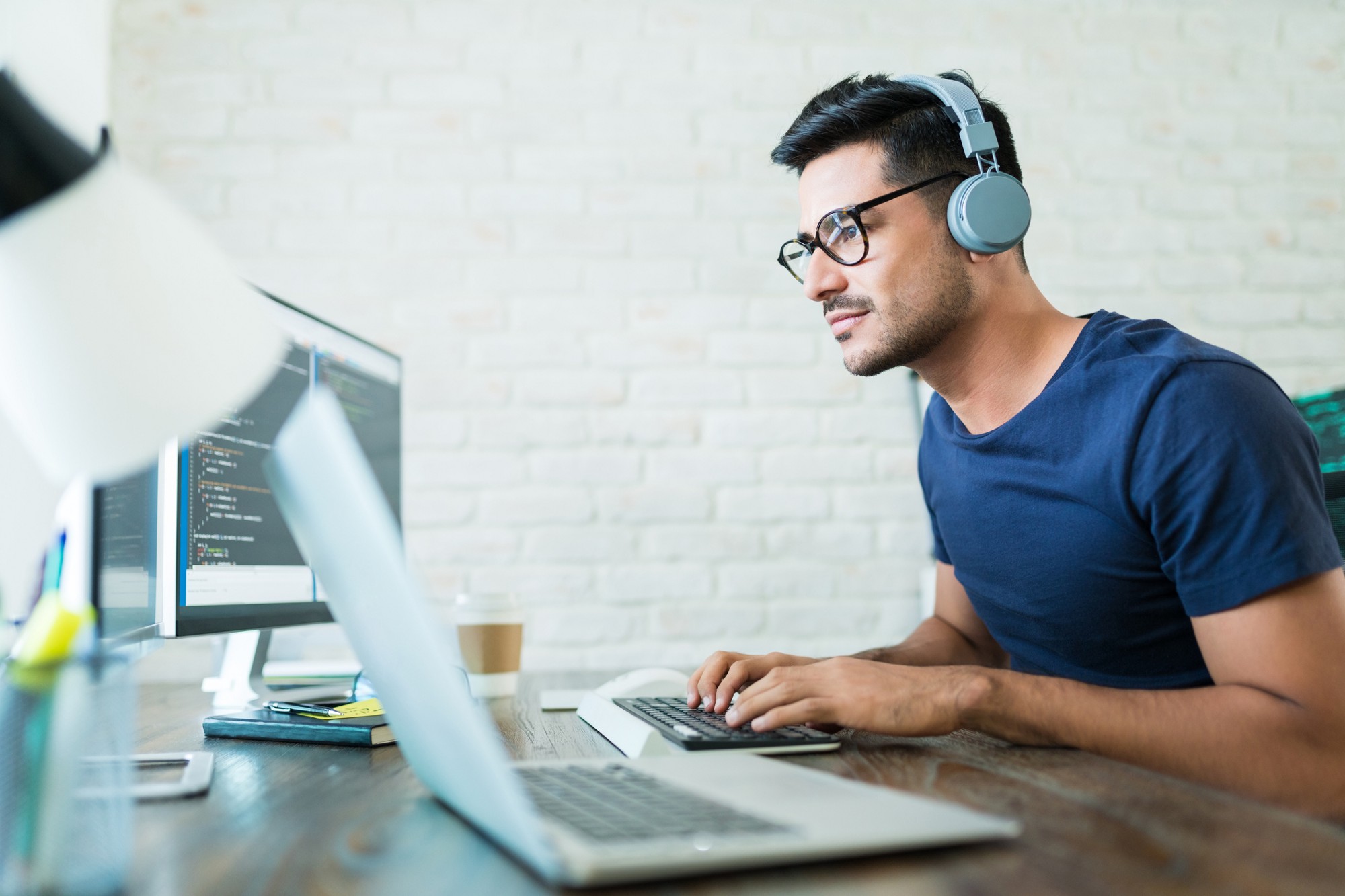
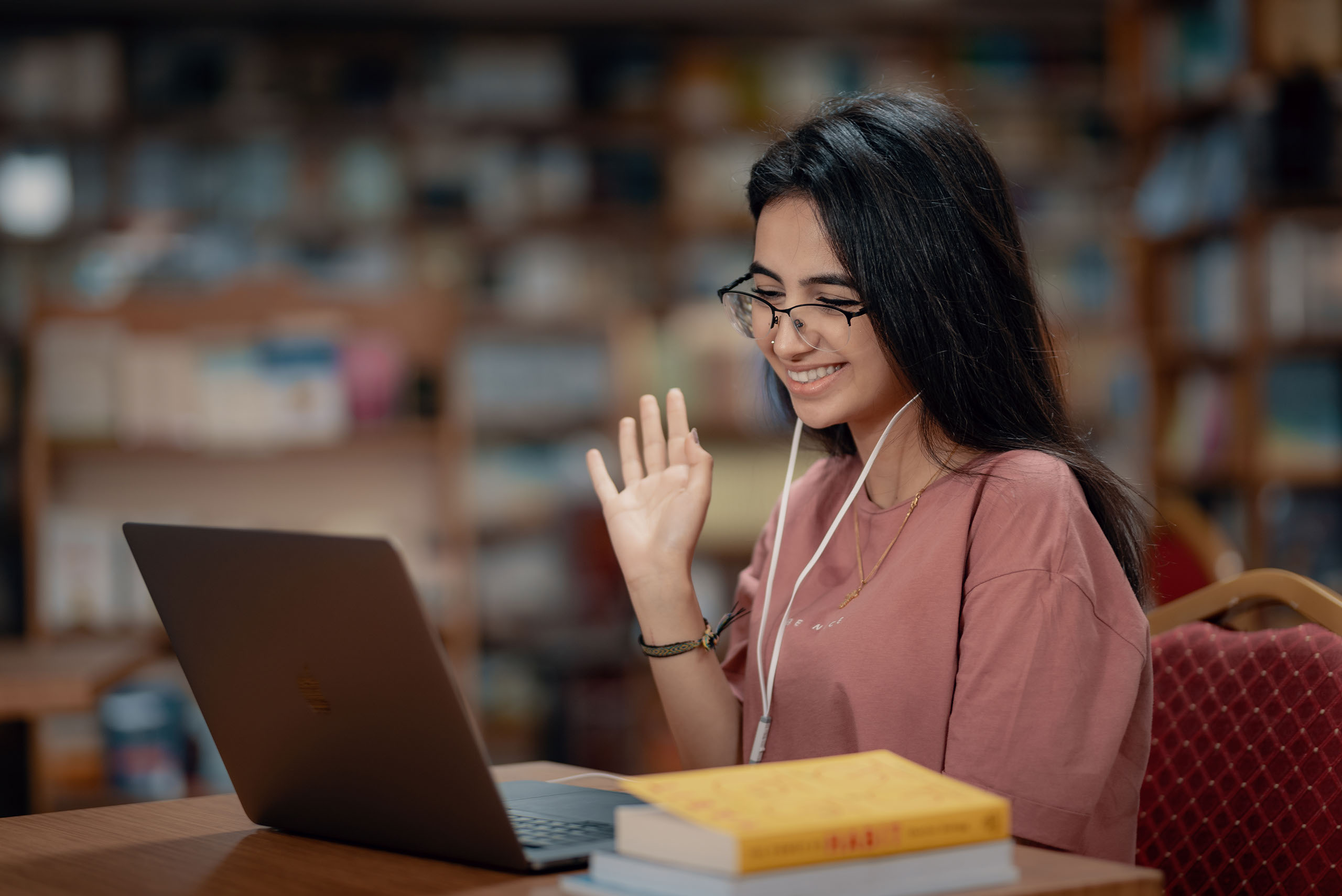
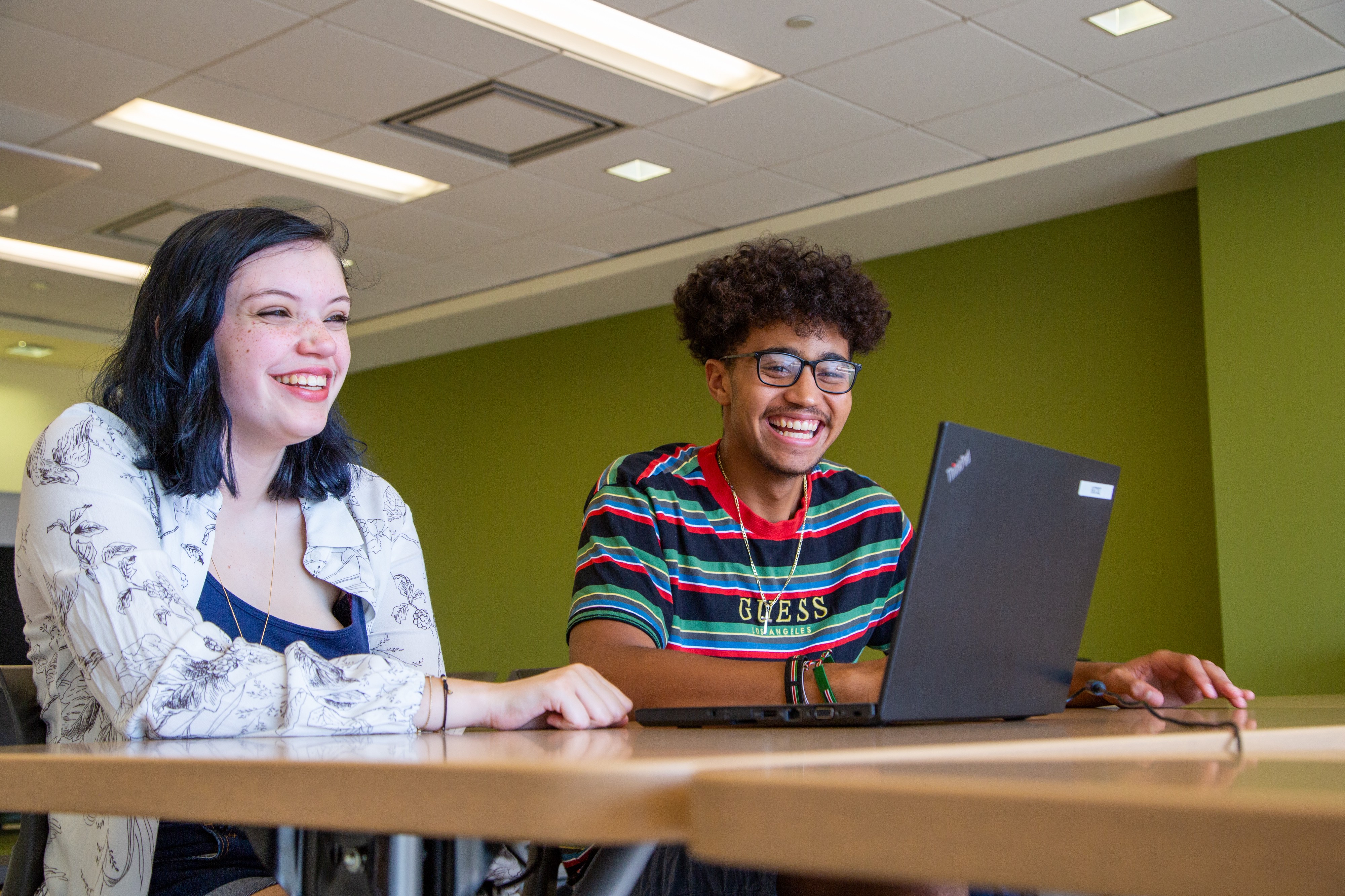
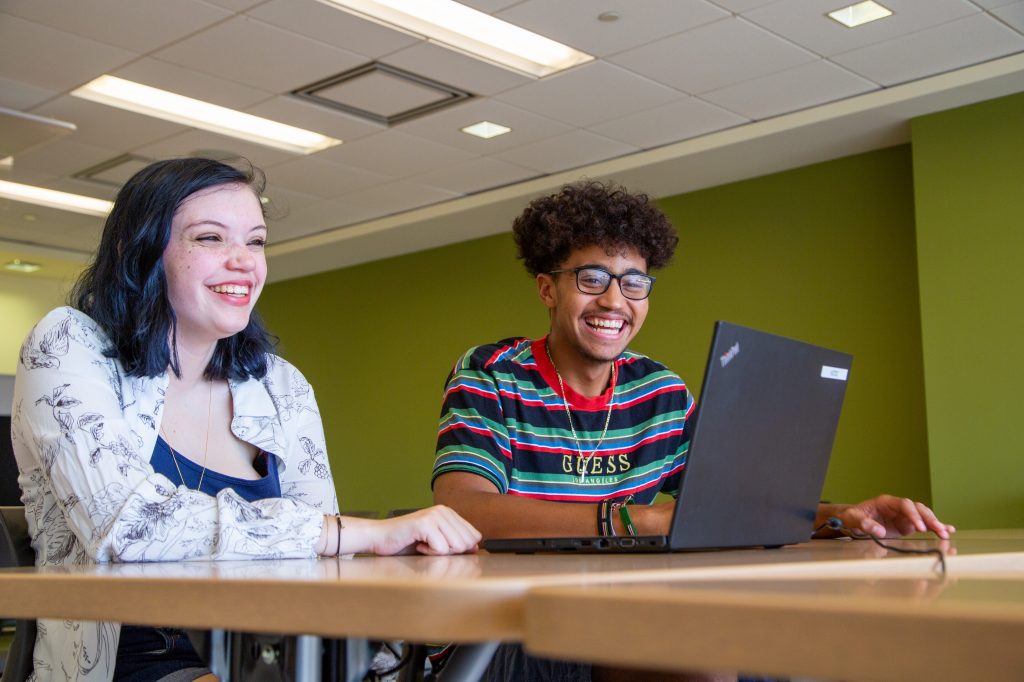
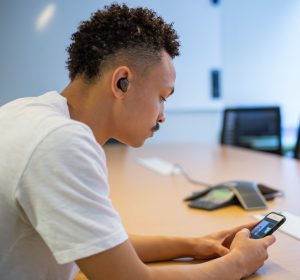
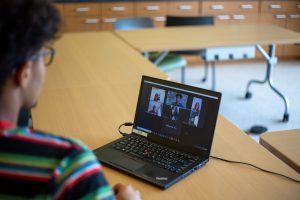
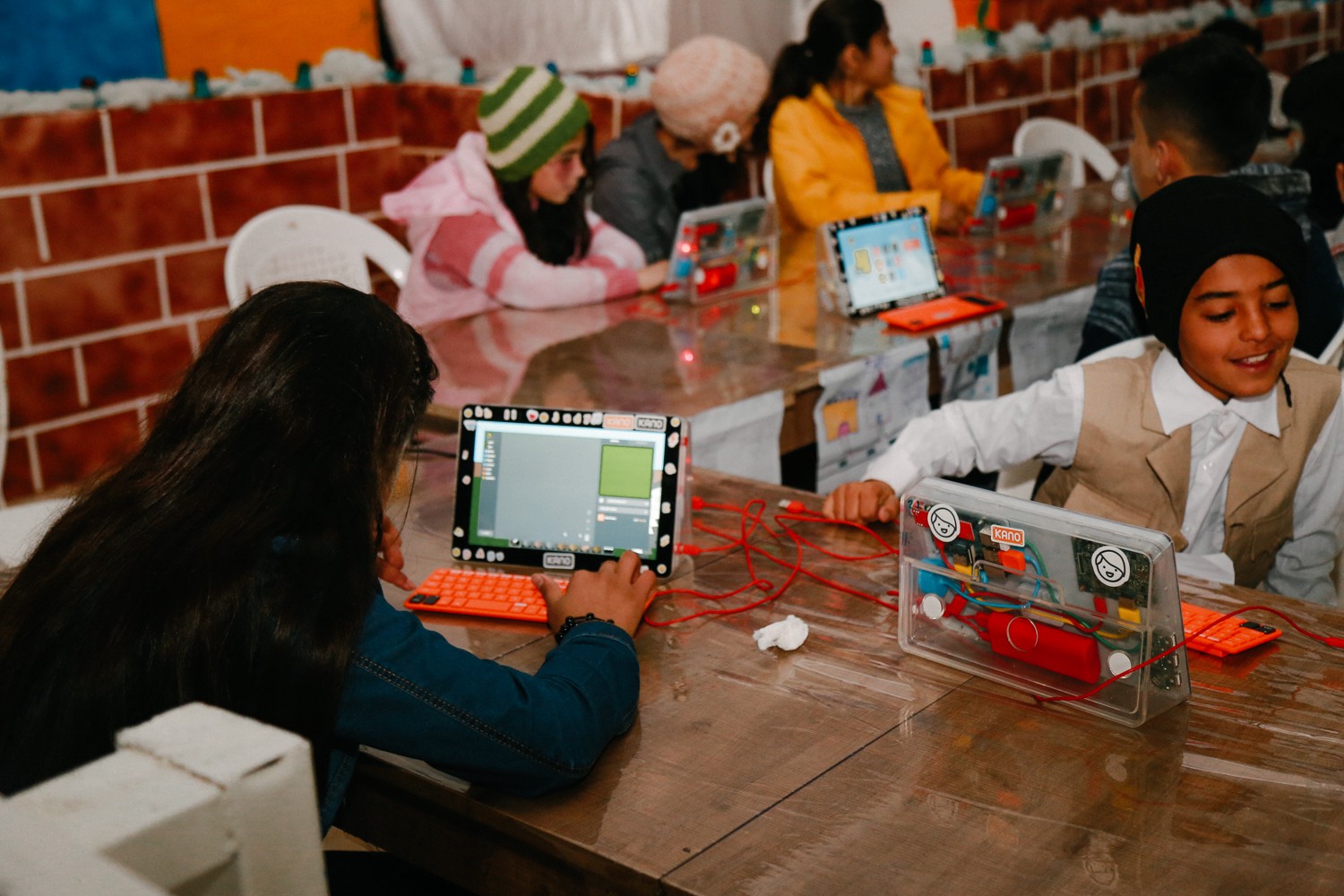
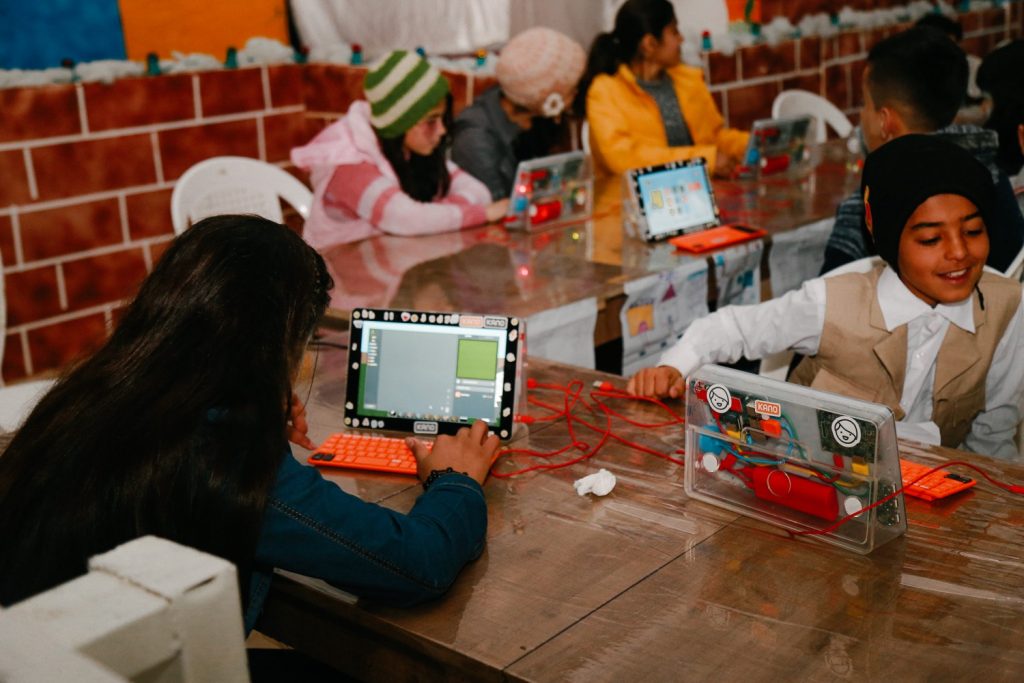
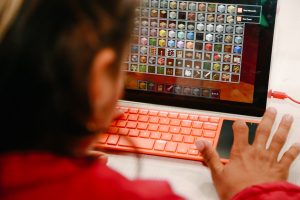
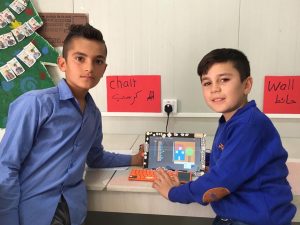
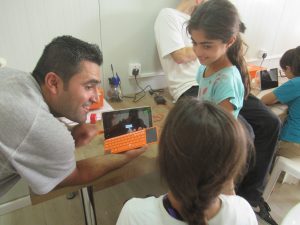
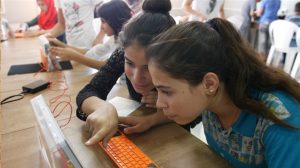
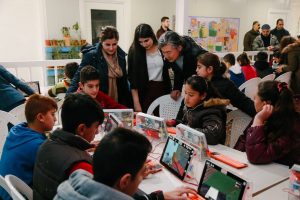
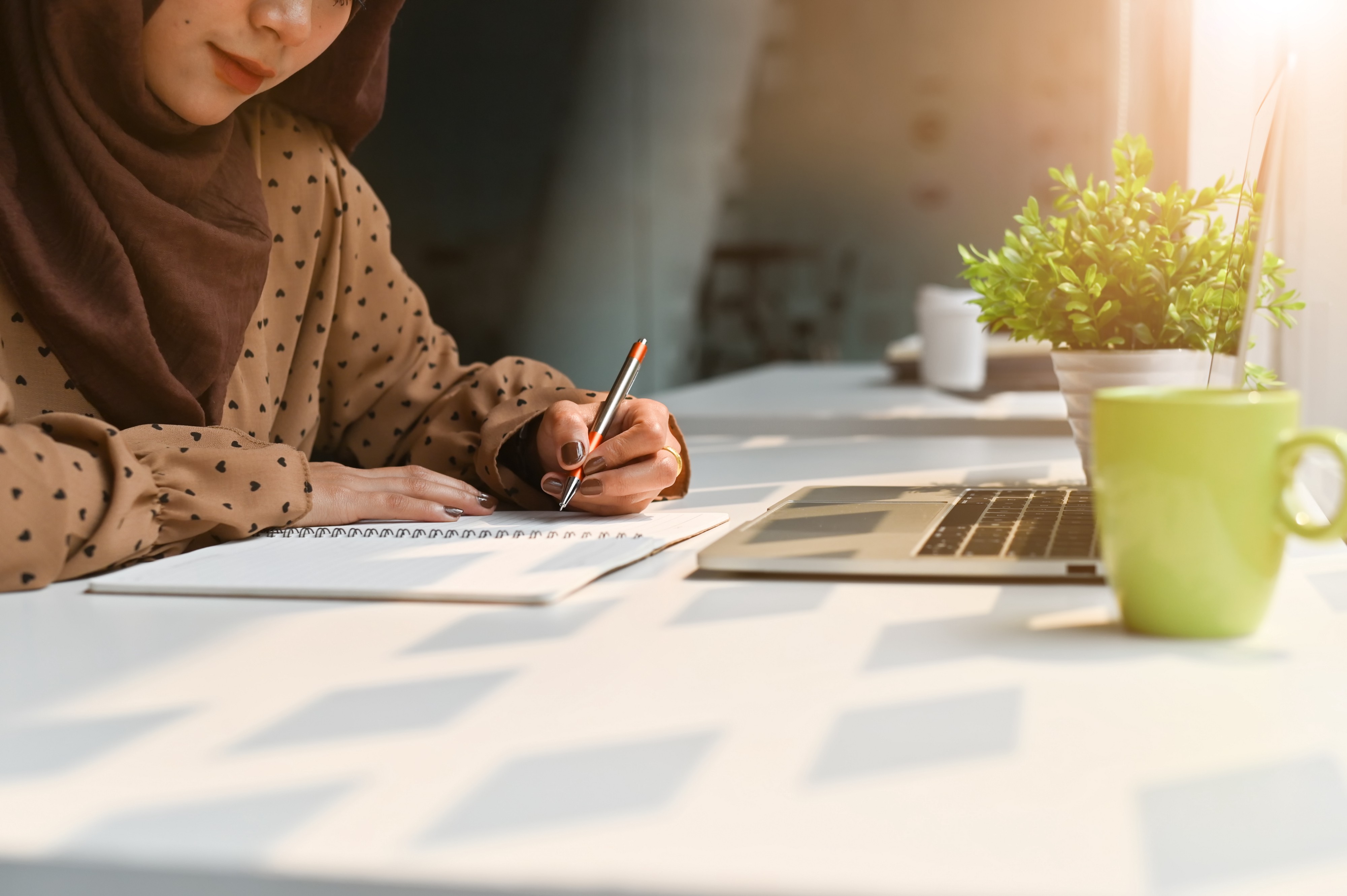
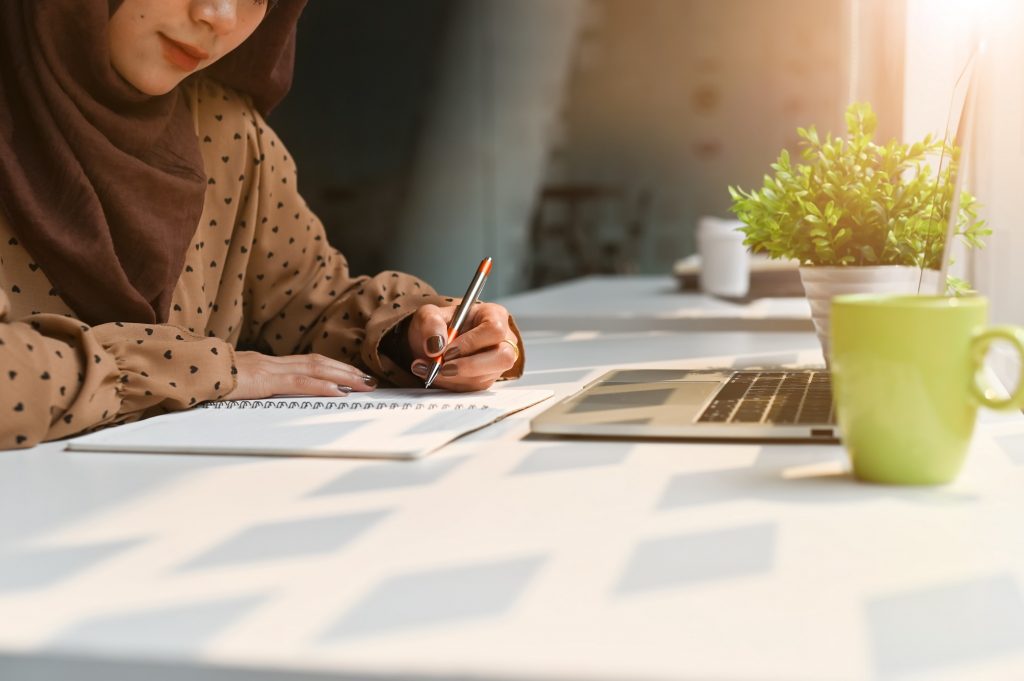
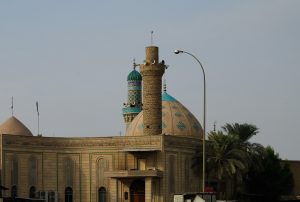
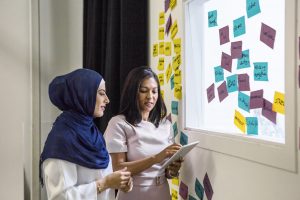
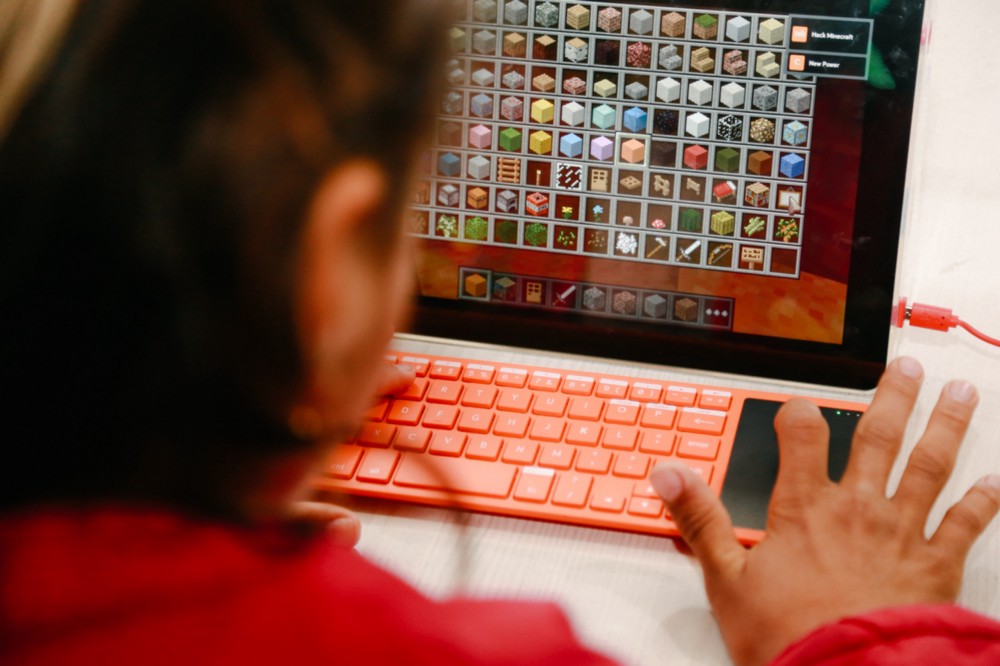
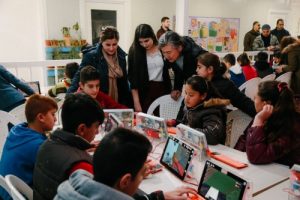
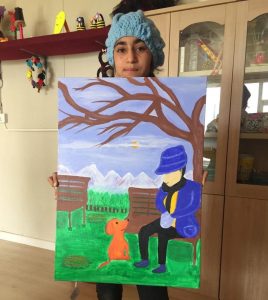
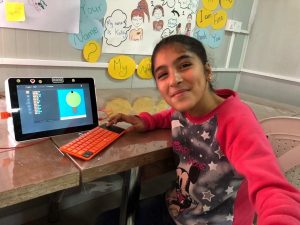
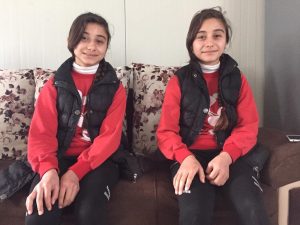

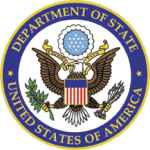
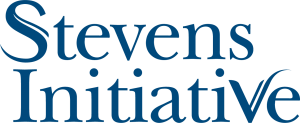

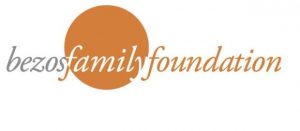
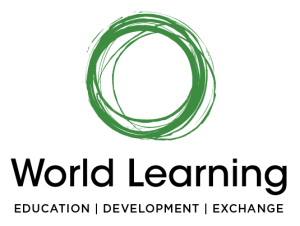
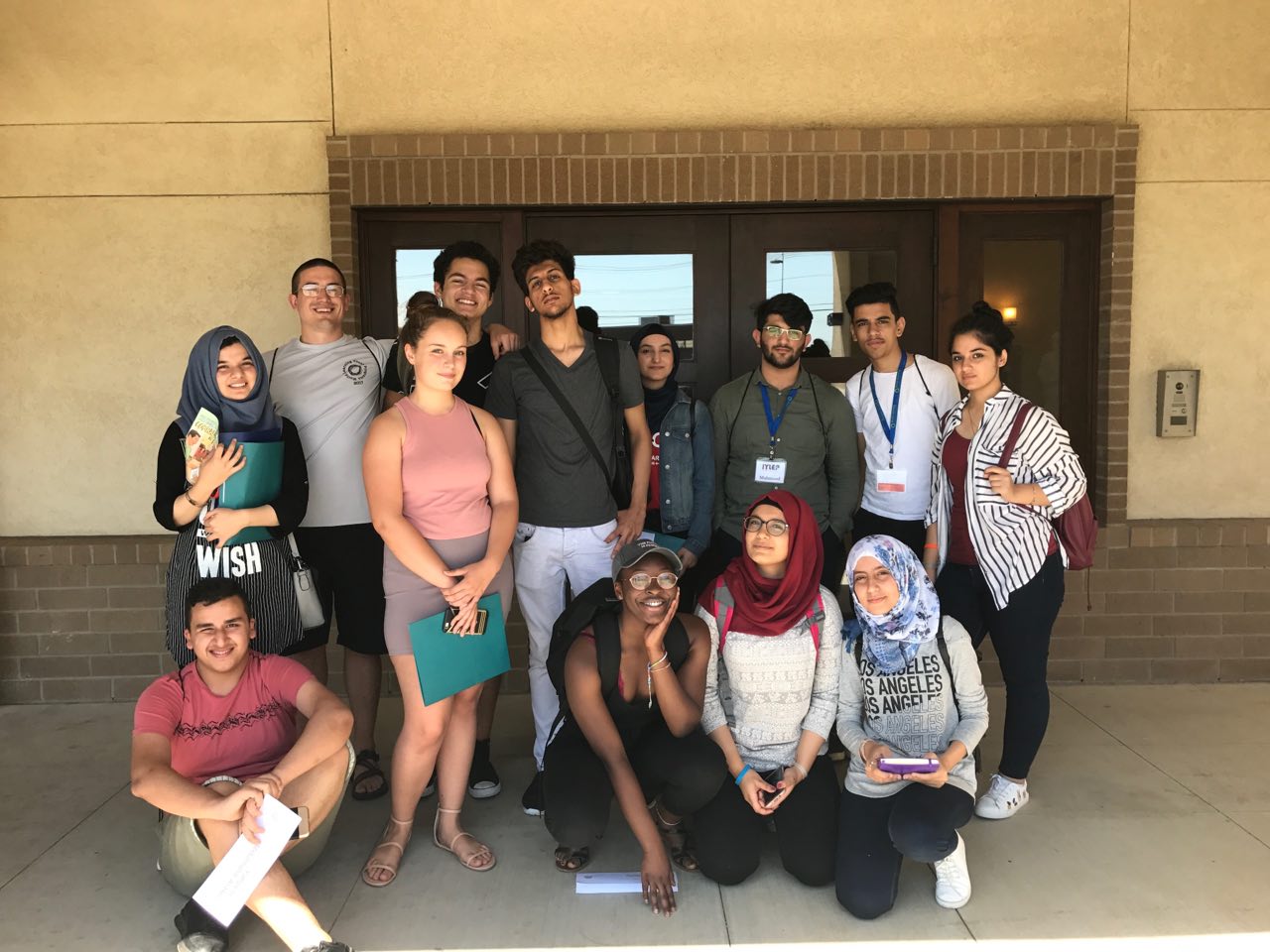
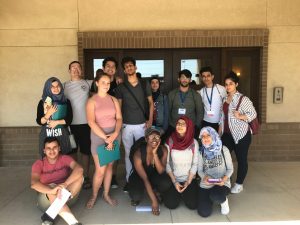
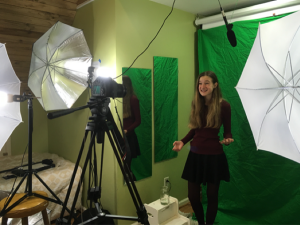
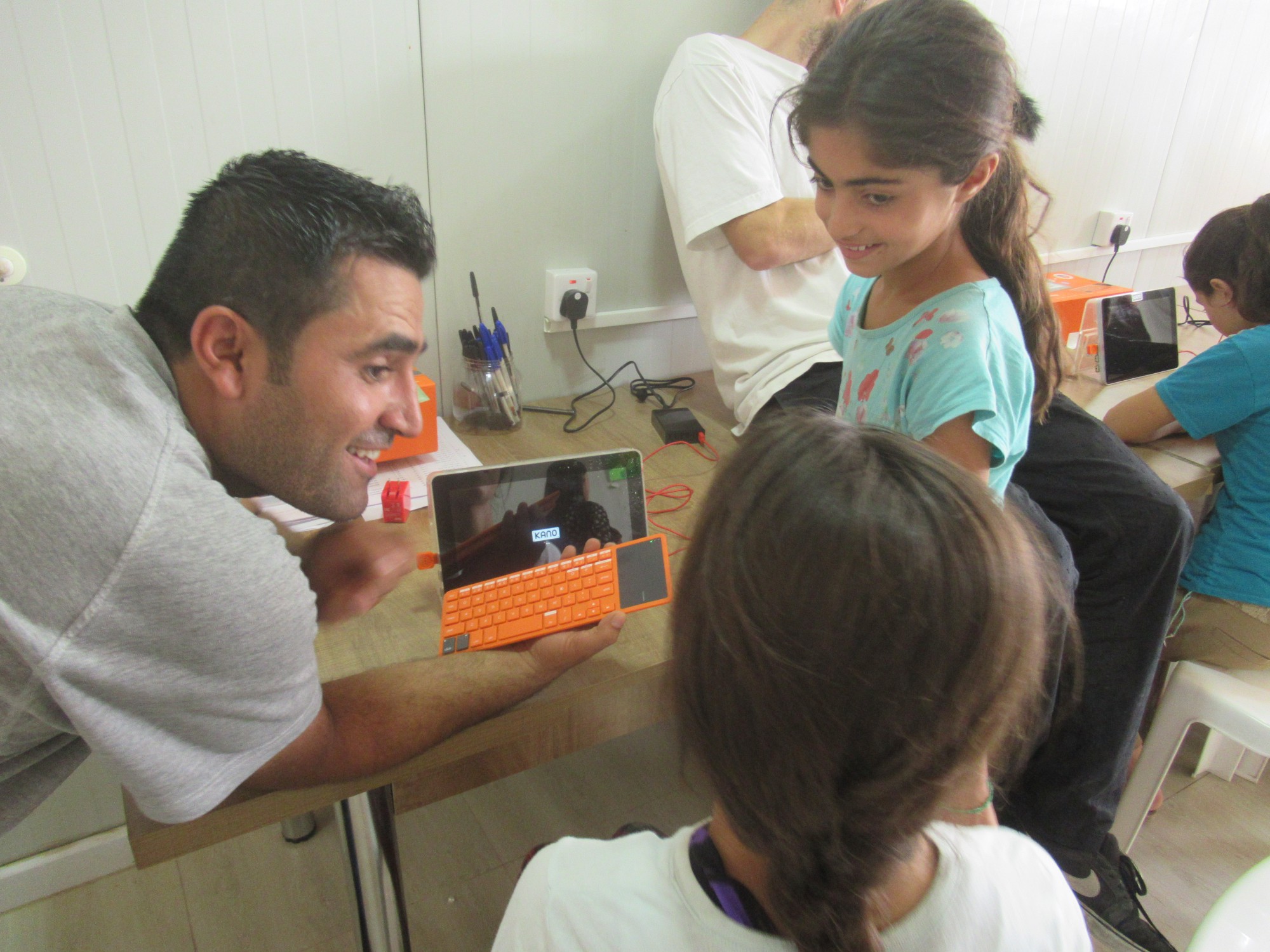
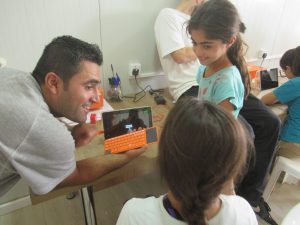 Five days a week, around 200 school-aged children huddle around U-shaped tables in the activity center at the Arbat refugee camp in northern Iraq. Together, the children build computers and learn basic coding, all while they practice English and develop strategies for coping in a difficult environment.
Five days a week, around 200 school-aged children huddle around U-shaped tables in the activity center at the Arbat refugee camp in northern Iraq. Together, the children build computers and learn basic coding, all while they practice English and develop strategies for coping in a difficult environment.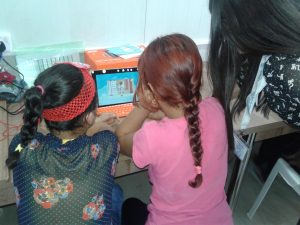 Kids Can Code builds upon Kano’s intuitive technology and computer coding lessons, which give young people the skills they need to find jobs in the modern workforce and to shape the digital world. World Learning, a leader in global education, adapted that curriculum to make it accessible for students in the camp, most of whom speak little to no English and often struggle with trauma.
Kids Can Code builds upon Kano’s intuitive technology and computer coding lessons, which give young people the skills they need to find jobs in the modern workforce and to shape the digital world. World Learning, a leader in global education, adapted that curriculum to make it accessible for students in the camp, most of whom speak little to no English and often struggle with trauma.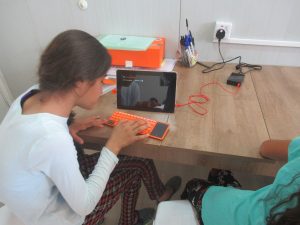 Though English and technology skills are the main aims of the club, McBride says the curriculum design also builds soft skills — like collaboration and problem solving — and is embedded with psychosocial support elements to help children who are dealing with difficult life circumstances feel safe in the classroom and develop skills for making friends and handling emotions. Kids Can Code teachers are trained to provide the emotional support their students need. “From the very first minute they walk in, you’re greeting them and being interested in their lives,” McBride says.
Though English and technology skills are the main aims of the club, McBride says the curriculum design also builds soft skills — like collaboration and problem solving — and is embedded with psychosocial support elements to help children who are dealing with difficult life circumstances feel safe in the classroom and develop skills for making friends and handling emotions. Kids Can Code teachers are trained to provide the emotional support their students need. “From the very first minute they walk in, you’re greeting them and being interested in their lives,” McBride says.